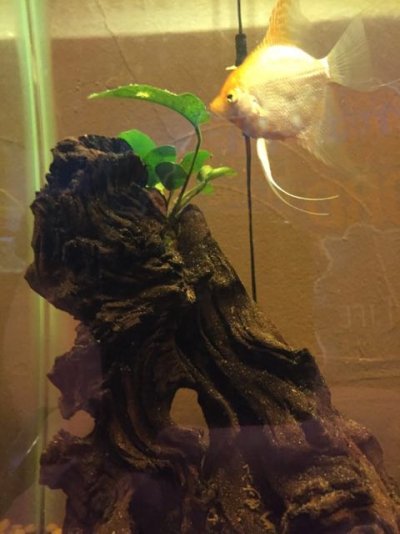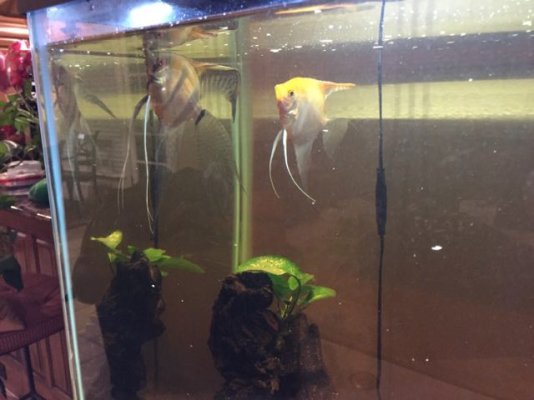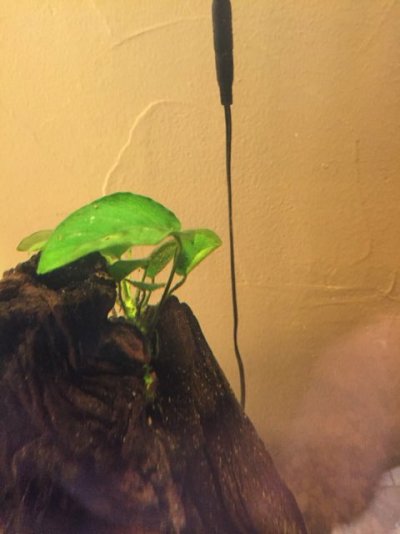jackcaspian
Aquarium Advice Apprentice
I have three Angelfish that I have had for a couple months in a six month old 55 gallon setup. I raised them all from when they were each about the size of a Half-Dollar. Just 2 or 3 days ago, two of them paired up and laid eggs. (I will probably sell, put up for adoption, or move the other.) I instantly went to work finding out as much as I could about the eggs and how to care for them. They were laid on the leaf of an Anubias Nana that had grown on to a piece of drift wood. On the first night, only about 3 or 4 of the eggs had fungus. But by the second night there were approximately 15 with fungus. I was alarmed at this but was temporarily comforted when I read that the mother angelfish will eat the eggs with fungus.
On the third night though, almost half of them were covered with it! But alas when I came home today, they were all gone. They had been eaten by the mother. I was very sad about this, as I had just informed my friends that the angelfish had laid the eggs.
I send this so that I can be critiqued on what I have done wrong in the hopes that whatever mistakes I have made won't be repeated. I am relatively new to the hobby, as I have about to approach my one year mark.
Here are some pictures from before:


These pictures were taken after they were eaten:

Please send helpful advice.
,Thanks
On the third night though, almost half of them were covered with it! But alas when I came home today, they were all gone. They had been eaten by the mother. I was very sad about this, as I had just informed my friends that the angelfish had laid the eggs.
I send this so that I can be critiqued on what I have done wrong in the hopes that whatever mistakes I have made won't be repeated. I am relatively new to the hobby, as I have about to approach my one year mark.
Here are some pictures from before:


These pictures were taken after they were eaten:

Please send helpful advice.
,Thanks
